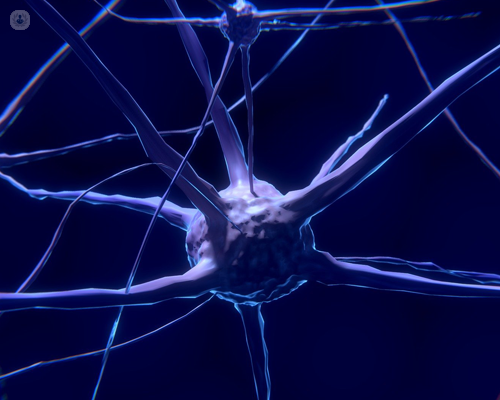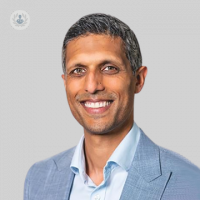The importance of seeing a neurologist after a stroke
Autore:When a stroke happens, every moment counts. Immediate medical attention can save lives and enhance recovery prospects. However, the importance of seeing a neurologist after a stroke is also important when it comes to recovery. Their expertise is essential regarding both acute care and long-term management.
Here to discuss this important topic is leading consultant neurologist, stroke and rehabilitation physician Dr Arvind Chandratheva.

Why is immediate medical attention crucial during a stroke?
Strokes can cause significant and sometimes irreversible damage to the brain. The quicker the response, the better the chances of minimising this damage. Immediate medical attention involves:
- Rapid assessment: Identifying the type of stroke (ischaemic or haemorrhagic) is vital. This is because treatments differ.
- Timely intervention: For ischaemic strokes, medications such as tissue plasminogen activator (tPA) can dissolve clots if administered within a critical time window.
- Preventing complications: Early treatment can prevent complications such as increased brain swelling or further bleeding.
What role does a neurologist play after a stroke?
Seeing a neurologist after a stroke is essential for several reasons:
Accurate diagnosis and evaluation
A neurologist conducts a thorough assessment to understand the extent and impact of the stroke. This includes:
Neurological examination: Assessing cognitive functions, motor skills and sensory perception.
Imaging studies: Utilising CT scans, MRI and other imaging techniques to visualise the brain and identify areas affected by the stroke.
A personalised treatment plan
Based on the evaluation, a neurologist devises a personalised treatment plan. This may involve:
Medication: Prescribing drugs to prevent further strokes, manage risk factors such as high blood pressure, cholesterol and diabetes, and alleviate symptoms.
Rehabilitation: Recommending physical, occupational and speech therapy to aid in recovery and improve function.
Monitoring and follow-up care
Regular follow-up visits with a neurologist ensure continuous monitoring of the patient’s progress and adjusting treatment as needed. This ongoing care helps to:
Prevent recurrence: Identifying and managing risk factors to reduce the likelihood of another stroke.
Address complications: Monitoring for and addressing complications such as seizures, depression and cognitive decline.
Support recovery: Providing guidance and support throughout the rehabilitation process to maximise recovery.
Patient education and support
Neurologists play a crucial role in educating patients and their families about stroke recovery and prevention. This includes:
Understanding the condition: Explaining the nature of the stroke, its effects, and what to expect during recovery.
Lifestyle modifications: Advising on diet, exercise and other lifestyle changes to improve overall health and reduce stroke risk.
Support resources: Connecting patients with support groups, counselling services and other resources to aid in their recovery journey.
When should you see a neurologist after a stroke?
Early neurological assessment and intervention are crucial for best outcomes. If a neurologist wasn’t involved during the initial hospital stay, it’s important to schedule an appointment as soon as possible after discharge. This is to arrange a comprehensive evaluation and to establish a follow-up plan regarding care.
If you’re looking for expert neurological support after having a stroke, arrange a consultation with Dr Chandratheva via his Top Doctors profile.


